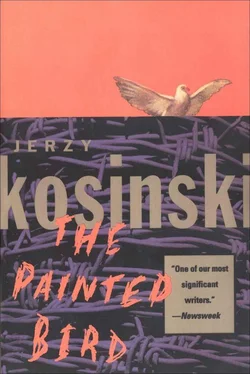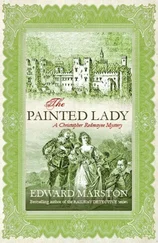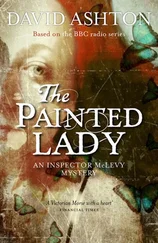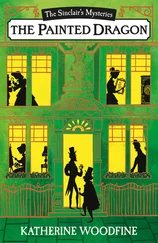Jerzy Kosiński - The Painted Bird
Здесь есть возможность читать онлайн «Jerzy Kosiński - The Painted Bird» весь текст электронной книги совершенно бесплатно (целиком полную версию без сокращений). В некоторых случаях можно слушать аудио, скачать через торрент в формате fb2 и присутствует краткое содержание. Год выпуска: 1965, ISBN: 1965, Жанр: Детская проза, на английском языке. Описание произведения, (предисловие) а так же отзывы посетителей доступны на портале библиотеки ЛибКат.
- Название:The Painted Bird
- Автор:
- Жанр:
- Год:1965
- ISBN:978-0-8021-9575-3
- Рейтинг книги:4 / 5. Голосов: 1
-
Избранное:Добавить в избранное
- Отзывы:
-
Ваша оценка:
- 80
- 1
- 2
- 3
- 4
- 5
The Painted Bird: краткое содержание, описание и аннотация
Предлагаем к чтению аннотацию, описание, краткое содержание или предисловие (зависит от того, что написал сам автор книги «The Painted Bird»). Если вы не нашли необходимую информацию о книге — напишите в комментариях, мы постараемся отыскать её.
The Painted Bird — читать онлайн бесплатно полную книгу (весь текст) целиком
Ниже представлен текст книги, разбитый по страницам. Система сохранения места последней прочитанной страницы, позволяет с удобством читать онлайн бесплатно книгу «The Painted Bird», без необходимости каждый раз заново искать на чём Вы остановились. Поставьте закладку, и сможете в любой момент перейти на страницу, на которой закончили чтение.
Интервал:
Закладка:
I tried to swing it up and down to throw it out of the circuit by the movements of my body. I was agonized at the thought that I would have to spend all night in this manner. I knew that if the bladder should burst, I would immediately drown. I could not swim.
The sun was slowly setting. Every time the bladder turned, the sun shone straight into my eyes and its dazzling reflections danced on the shimmering surface. It grew chilly and the wind became more turbulent. The bladder, pushed by a new gust, glided out of the eddy.
I was miles from Olga’s village. The current carried me toward a shore obscured by a deepening shadow. I began to discern the marshes, the tall swaying clumps of rushes, the hidden nests of sleeping ducks. The bladder moved slowly through the scattered tufts of grass. Waterflies hovered nervously on every side of me. The yellow chalices of lilies rustled, and a frightened frog belched from a ditch. Suddenly a reed pierced the bladder. I stood on the spongy bottom.
It was completely still. I could hear vague voices, human or animal, in the alder groves and dank swamps. My body was doubled up with cramp and covered with gooseflesh. I listened intently, but the stillness was everywhere.
3
I was frightened to find myself entirely alone. But I remembered the two things which, according to Olga, were necessary for survival without human help. The first was a knowledge of plants and animals, familiarity with poisons and medicinal herbs. The other was possession of fire, or a “comet” of one’s own. The first was harder to obtain—it required a great deal of experience. The second consisted merely of a one-quart preserve can, open at one end and with a lot of small nail holes punched in the sides. A three-foot loop of wire was hooked to the top of the can by way of a handle, so that one could swing it either like a lasso or like a censer in church.
Such a small portable stove could serve as a constant source of heat and as a miniature kitchen. One filled it with any kind of fuel available, always keeping some sparks of fire at the bottom. By swinging the can energetically, one pumped air through the holes, as the blacksmith does with his bellows, while centrifugal force kept the fuel in place. A judicious choice of fuel and an appropriate swinging motion permitted the building up of heat suitable for various purposes, while steady stoking prevented the “comet” from going out. For example, the baking of potatoes, turnips, or fish required a slow fire of peat and damp leaves, and the roasting of a freshly killed bird required the live flame of dry twigs and hay. Birds’ eggs freshly plucked from their nests were best cooked on a fire of potato stalks.
To keep the fire alight through the night, the comet had to be tightly packed with damp moss collected from the bases of tall trees. The moss burned with a dim glow, producing smoke which repelled snakes and insects. In case of danger it could be brought to white heat with a few swings. On wet snowy days the comet had to be refilled frequently with dry resinous wood or bark and required a lot of swinging. On windy or hot dry days the comet did not need much swinging, and its burning could be further slowed down by adding fresh grass or by sprinkling in some water.
The comet was also indispensable protection against dogs and people. Even the most vicious dogs stopped short when they saw a wildly swinging object showering sparks which threatened to set their fur on fire. Not even the boldest man wanted to risk losing his sight or having his face burned. A man armed with a loaded comet became a fortress and could be safely attacked only with a long pole or by throwing rocks.
That is why the extinction of a comet was an extremely serious thing. It could happen through carelessness, oversleeping, or a sudden downpour. Matches were very scarce in that area. They were costly and hard to obtain. Those who had any matches got into the habit of splitting each match in half for economy.
Fire was therefore preserved most scrupulously in kitchen stoves or in the fireboxes of ovens. Before retiring for the night women would bank up ashes to make certain that the embers would keep glowing until morning. At dawn they reverently made the sign of the cross before blowing the fire back to life. Fire, they said, is no natural friend to man. That is why one must humor it. It was also believed that sharing fire, especially borrowing it, could only result in misfortune. After all, those who borrow fire on this earth might have to return it in hell. And carrying fire out of the house might make the cows dry or go barren. Also, a fire that went out could produce disastrous consequences in cases of childbirth.
Just as fire was essential to the comet, the comet was essential to life. A comet was necessary for approaching human settlements, which were always guarded by packs of savage dogs. And in the winter an extinguished comet might lead to frostbite as well as to the lack of cooked food.
People always carried small sacks on their backs or at their belts for collecting fuel for the comets. In the daytime, peasants working in the fields baked vegetables, birds, and fish in them. At night, men and boys coming home would swing them with all their strength and let them fly into the sky, burning fiercely, like soaring red disks. The comets flew in a wide arc, and their fiery tails traced their courses. That is how they got their name. They did really look like comets in the skies with their flaming tails, whose appearance, as Olga explained, signified war, plague, and death.
It was very difficult to obtain a can for a comet. These were found only along the railroad tracks which carried military transports. The local peasants prevented outsiders from collecting them, exacting a high price for the cans they found themselves. Communities on each side of the tracks fought over the cans. Every day they sent out teams of men and boys equipped with sacks for any cans they could find, and armed with axes to ward off any competitors.
I was given my first comet by Olga, who had received it in payment for treating a patient. I took very good care of it, hammering over the holes that threatened to become too large, flattening dents, and polishing the metal. Anxious not to be robbed of my only important possession, I wrapped some of the wire attached to the handle around my wrist and never parted from my comet. The brisk, sparkling fire filled me with a feeling of security and pride. I never missed an opportunity to fill my sack with the right kinds of fuel. Olga often sent me to the woods for certain plants and herbs with curative properties, and I felt perfectly safe as long as I had my comet with me.
But Olga was now far away and I was without the comet. I shivered with cold and fear and my feet were bleeding from cuts of the sharp blades of water reeds. I brushed off from my calves and thighs the leeches which swelled visibly as they sucked my blood. Long, crooked shadows fell over the river and muffled sounds crept along the murky banks. In the creaking of the thick beech branches, in the rustling of the willows trailing their leaves in the water, I heard the utterances of the mystic beings of whom Olga had spoken. They took on peculiar shapes, serpentine and peaked of face, having a bat’s head and a snake’s body. And they coiled themselves around a man’s legs, drawing his will to live out of him until he sat down on the ground, in search of a slumber from which there was no awakening. I had sometimes seen such strange-shaped snakes in barns, where they terrified the cows into agitated mooing. They were said to drink the cows’ milk or, even worse, to crawl inside the animals and consume all the food they ate until the cows starved to death.
Cutting through the reeds and tall grasses, I started running away from the river, forcing through barricades of tangled weeds, bending low to squeeze under walls of overhanging branches, almost impaling myself on sharp reeds and thorns.
Читать дальшеИнтервал:
Закладка:
Похожие книги на «The Painted Bird»
Представляем Вашему вниманию похожие книги на «The Painted Bird» списком для выбора. Мы отобрали схожую по названию и смыслу литературу в надежде предоставить читателям больше вариантов отыскать новые, интересные, ещё непрочитанные произведения.
Обсуждение, отзывы о книге «The Painted Bird» и просто собственные мнения читателей. Оставьте ваши комментарии, напишите, что Вы думаете о произведении, его смысле или главных героях. Укажите что конкретно понравилось, а что нет, и почему Вы так считаете.












